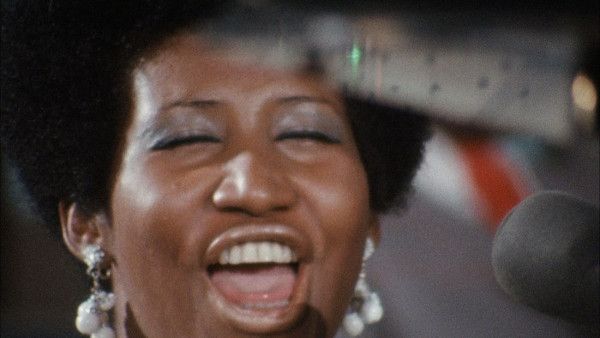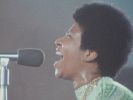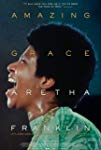Eye For Film >> Movies >> Amazing Grace (2018) Film Review
Amazing Grace
Reviewed by: Jennie Kermode

In January 1972, Aretha Franklin was 29 years old and a megastar. She had recently scored top ten hits with Rock Steady, Day Dreaming and her version of Spanish Harlem, her albums were winning widespread acclaim and she had graced the cover of Time magazine. But Aretha had other concerns. She was grateful to God for her success, and to the Baptist community that had originally supported her. She wanted to make a live album that would taker her back to her gospel music roots and she wanted to record it in a church. Her record company agreed but also arranged for Sydney Pollack to go along and film it.
At the time, what resulted was in poor condition for cinema release. Franklin herself objected to it and Pollack admitted to major difficulties getting sound and image to match up, having laboured in conditions that, from his perspective, were less than ideal. As a result, it languished for five decades until technology emerged that enabled its syncing problems to be fixed. Careful editing fixed a lot of the remaining issues. The result is a curious hybrid that feels like a much more authentic picture of the real event than the raw material from which it was constructed.

Whatever it is, it's beautiful. Whilst the venue might not have been ideal for a filmmaker trying to work around a sound recording crew, and whilst the crowd need to be prompted to sound larger, it's wonderfully intimate. The closeness between star and audience is palpable. Pollack's camera wanders around as she sings, taking in facial expressions and, as the pace of the music picks up, a particular spontaneous way of leaping up in delight more often seen during sermons than polite concerts. Everyone there plainly ha a sense of the importance of the moment. Everyone has a role, if only to provide background noise, and takes it seriously, but those outbursts of delight are entirely natural.
There is a great deal of joy in this film. One doesn't need to be religious to find something ineffable not just in the music itself but in the way it is expressed. The power of the film hinges on Aretha's relationship with her faith and one cannot help but think that if more Christians loved God with this intensity they would have no need to threaten Hellfire to try and keep people in line. It's easy to cleave to the passion on display, almost impossible to maintain emotional distance. In the close up shots we can see that the familiarity of these songs had not led Aretha to approach them merely as an act; as she begins to sing her expression becomes rapt. it is perhaps that sincerity, as much as her vocal range, that marked her out as a star.
Released less than a year after her death, this film is bound to stir up feelings of nostalgia. Appreciation of the singer's legacy has never been so great and it's a fine thing to have the opportunity to watch her at that pivotal point in her career, especially in a performance that was clearly very personal to her. Better still to have the opportunity to hear it through a cinema sound system, something few films make enough of. The rough edges of this film only add to its character, much as the roughness that crept into the singer's voice as she aged added a new kind of beauty to it. Here that voice is young and sweet but even in the gentlest songs its power comes through. It will lift your spirits.
Reviewed on: 05 Apr 2019
















